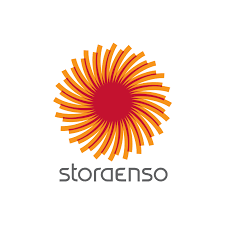
Recycled fibre is an important raw material for Stora Enso as it is aligned with the company’s commitment towards a renewable and circular business. The paper board for cups is made of high-quality, renewable fibres, which can have several lives due to recycling. Recycling a paper cup can reduce its life cycle carbon footprint by half. Stora Enso sees this as an opportunity for driving more effective paper cup recycling by developing circular models with partners across the value chain.
“With efficient recycling processes, food service companies using wood fibre-based cups can improve their environmental footprint. Recycling must be made easy for consumers, that is why we want to invite partners and customers to jointly develop business models for collecting paper cups,” says Annica Bresky, Executive Vice President of the Stora Enso Consumer Board division.
In recycling trials at Langerbrugge Mill, half a million baled post-consumer paper cups collected from fast food restaurants and coffee houses were re-pulped and recycled into magazine paper. The result confirmed that paper cups can be recycled at the mill without any additional process equipment, and that the fibres are well suited for other paper applications, such as magazine paper production.
“We see paper cups as a valuable raw material for our process. Used paper cups provide a potential source of high-quality fibre for the production of magazine paper. Langerbrugge Mill has the technical readiness to accept billions of used cups for recycling within our sourcing area. The challenge is more about getting these cups to us on the industrial scale that our production would require,” says Rik Van Bostraeten, Sourcing Manager, Multifuel & Business Innovation, Stora Enso Langerbrugge Mill.







